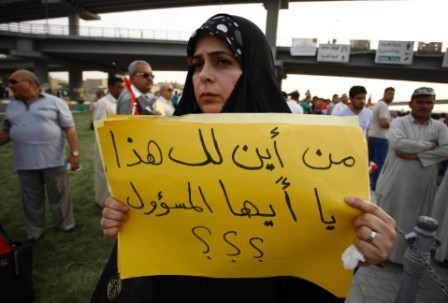Iraqi PM moves to tackle corruption
Baghdad
Iraqi Prime Minister Haider al Abadi proposed scrapping top government posts and privileges yesterday in an ambitious reform drive sparked by swelling popular anger over corruption and poor governance.
The proposed reforms followed weeks of demonstrations and a call for tougher reform measures from top Shia cleric Grand Ayatollah Ali al-Sistani, who is revered by millions of Iraqis.
Amid a major heatwave that has seen temperatures top 50 degrees Celsius (120 degrees Fahrenheit), protesters have railed against the poor quality of services, especially power outages that leave Iraqis with only a few hours of government-supplied electricity per day.
But even with popular pressure and Sistani's backing, the entrenched nature of corruption in Iraq and the fact that parties across the political spectrum benefit from it will make any efforts to change the system extremely difficult.
One of the most drastic proposals outlined in an online statement by Abadi was the call for the elimination of the posts of vice president and deputy prime minister "immediately".
The cabinet approved the reform plan yesterday, Abadi's office said, but changes such as abolishing the posts would apparently require the constitution to be amended, which would necessitate parliamentary action.
The three vice presidential posts, which come with more privileges than responsibilities, are held by former top officials - Abadi's predecessor and main rival Nuri al Maliki, ex-parliament speaker Osama al Nujaifi and former premier Iyad Allawi.
Maliki and Nujaifi said yesterday that they supported the reform drive, indicating that the proposed changes may have been made as part of a deal they endorsed. "I renew my support for the reforms that are needed," said Maliki, while Nujaifi announced his "support for and welcome of the decisions".
Abadi also called for a major overhaul of the way senior officials are selected, saying that all "party and sectarian quotas" should be abolished, and the candidates chosen by a committee appointed by the premier.No quotas are enshrined in the constitution, but the patronage system grants many government jobs according to sect and party affiliation rather than merit.
Abadi said there should be a "comprehensive and immediate reduction" in the number of guards for officials. Abadi also called for an end to "special provisions" for senior officials, both current and retired.
Related Posts

